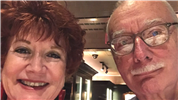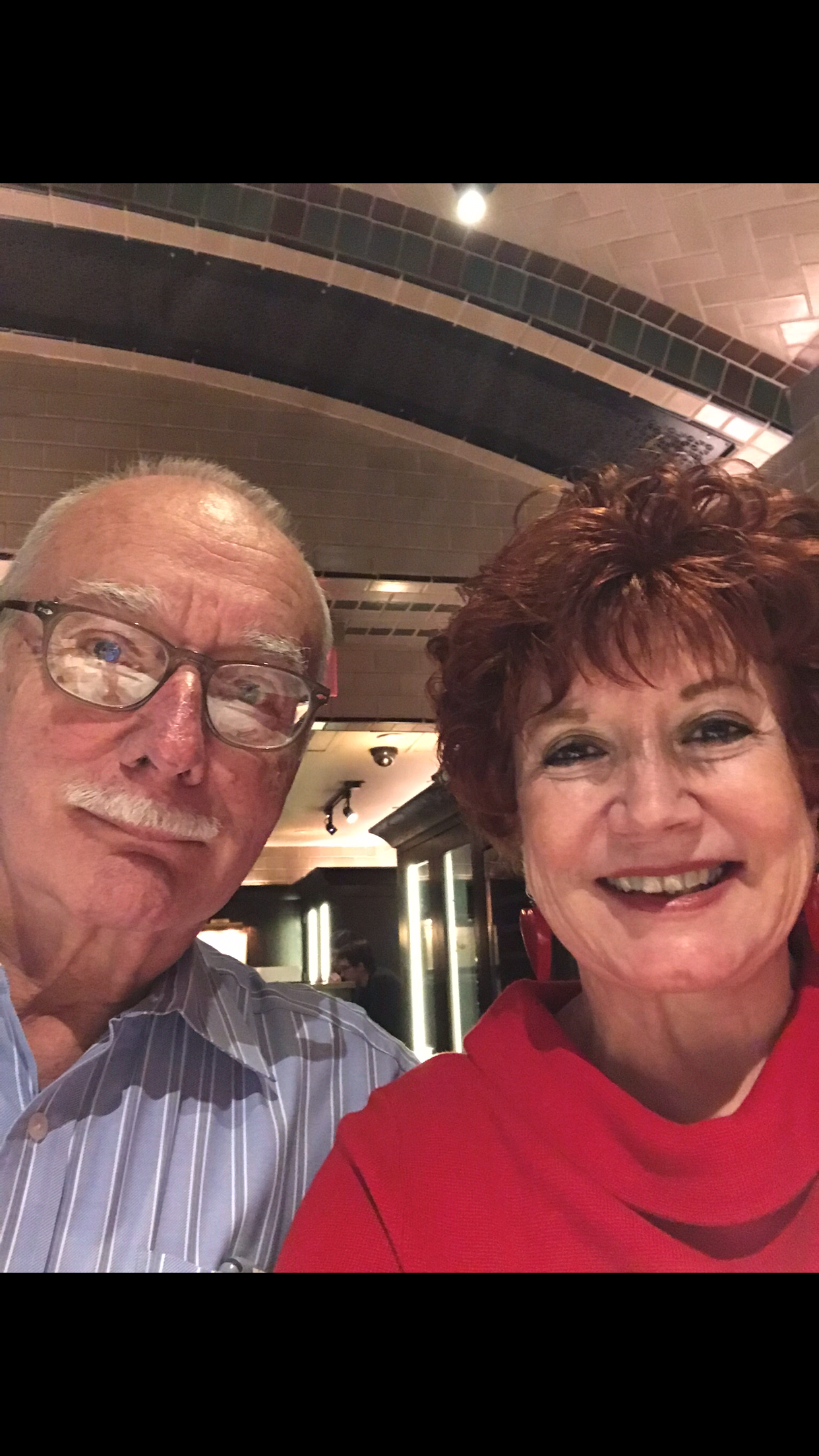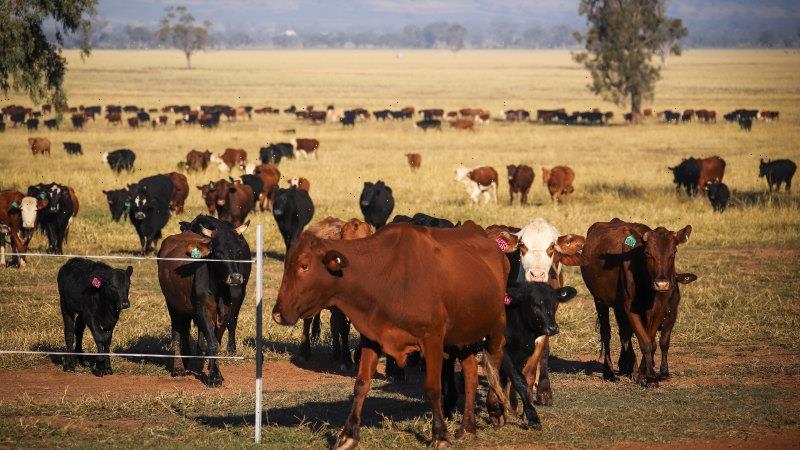A Southwest Airlines flight attendant has filed a wrongful death lawsuit against the airline, alleging that lax COVID protocols during mandatory training last summer and slack contact tracing after an attendee tested positive led to her husband’s death from the virus.
Carol Madden, a 69-year-old Baltimore-based flight attendant who has worked for Southwest since 2016, is seeking more than $3 million in damages for what the lawsuit says was the airline’s negligence, according to the suit filed in U.S. District Court in Maryland.
She and her husband, Bill, a veteran and retired railroad signal engineer who drove her home from the one-day training session at Baltimore-Washington International Airport in July, got sick days after the training and eventually tested positive for COVID-19. Bill’s oxygen levels plunged, and his health deteriorated so rapidly he couldn’t take his own temperature. He died a few weeks later in a York, Pennsylvania, hospital, with COVID pneumonia listed as the first cause of death. He was 73.
Madden, a cancer survivor who stayed on the job throughout the pandemic, told USA TODAY she “firmly believes my husband would still be here” if Southwest had applied the same strict safety protocols for employees as it does for passengers. It even coined a term for the latter, the Southwest Promise.
“They were cleaning the seats. They were cleaning the air vents. They were cleaning the seat belts. Every touchpoint was cleaned,”‘ she said in an interview Tuesday. “They did not do that in my training last year.”
“I love my airline, but they didn’t love me back.”
So long, social distancing: Southwest discontinues COVID boarding process
Southwest Airlines filed a motion Friday to dismiss the case. In the filing, the airline expressed its sympathy to Madden and others who have lost family members to COVID-19 but said blaming the airline for his death is “misplaced.”
The airline said it is required to provide a “reasonably safe work environment” for employees but that the “duty of care” responsibility does not extend to spouses or others in the household, even in cases of transmission of diseases at work. The company also said there is no way to know precisely where or when she contracted the coronavirus that causes COVID-19.
“The claims asserted in the complaint reflect an understandably emotional response to a devastating personal loss, but they are not actionable under the law,” the airline said.
Madden’s attorney, Dan Mastromarco of The Mastromarco Firm, said he is preparing a legal response.
From dream job to heartbreak
Madden became a Southwest flight attendant at age 64 after several other careers, including real estate and paralegal services.
“I’ve worn seven hats in my life,” she said. “This was my dream.”
The New York native said she was able to chase her dream because her husband was retired and took care of everything at home and shuttled her to and from the airport. The pair met when she was 12 and he was 17 and were married for 35 years.
“He was a phenomenal man. He had a heart of gold,” she said. “There is nothing and no one that can replace him.”
Carol and Bill Madden were married for 35 years. He died from COVID complications, among other causes, in August 2020. Carol Madden, a Southwest Airlines flight attendant, has filed a lawsuit against the airline for allegedly lax protocols during training and , where she says she contracted COVID and brought the virus home to her husband. (Photo: Courtesy of Carol Madden)
She needed the money: Family grieves loss of American Airlines flight attendant to COVID
Southwest flight attendant training: Masks but few other COVID safeguards, lawsuit says
The Federal Aviation Administration requires recurrent training for flight attendants, and Madden said she was initially signed up for April 2020. It was moved to mid-July due to the onset of the pandemic.
Southwest flight attendants and instructors were not screened for COVID symptoms prior to or during the day-long training or asked about COVID exposure, according to the lawsuit.
Masks were required, but there was no hand sanitizer supplied, and equipment from fire extinguishers to megaphones wasn’t sanitized between uses, the lawsuit says.
The human-sized dummy used for self-defense training wasn’t wiped down either, despite flight attendants’ “extensive physical contact” with it. The dummy’s name: Bob.
“Southwest failed to sanitize Bob or any of the other equipment used during this proficiency training,” the lawsuit says.
Social distancing was sparse, Madden said.
“We were at six-foot tables, folding tables with legs,” she said. “You’re not six feet apart. You’re maybe four feet or less.”
All would have reduced the chance for COVID transmission, the lawsuit says.
In a statement, Southwest Airlines spokesman Brad Hawkins extended the airline’s sympathy to Madden and said the well-being of Southwest’s employees and customers has been its “uncompromising priority” since the beginning of the pandemic.
“Southwest has taken enhanced measures to clean and maintain our aircraft, airports and work centers and follows all notification guidelines in accordance with the (Centers for Disease Control and Prevention),” Hawkins said in a statement. “Additionally, the Southwest team works each day to ensure that our multi-layered approach to supporting our employees’ and customers’ safety stays current with research findings and public health recommendations. Southwest will continue our dedicated efforts to support our people and communities as we collectively work together to slow the spread of COVID-19 during the ongoing pandemic.”
American Airlines briefly suspended flight attendant training last fall after several instructors tested positive for COVID.
How long will masks be required on planes? Flight attendants say mask mandate should be extended
Delayed contact tracing: ‘I found it out by Facebook’
The day after she returned home from training, on July 23, Madden said she called Southwest to tell them she and her husband was sick with COVID symptoms and she wouldn’t be able to work an upcoming trip. She and her husband got COVID tests that day, but the results weren’t expected for at last several days due to a backlog.
“They told me they would not pay me or they would not take (attendance) points away until I proved that I had COVID,” she said.
What the airline and her union didn’t tell her, she said: someone in her training group had tested positive for COVID a few days after returning home, several days before Madden reported her symptoms to both parties and well before her husband turned gravely ill.
Madden learned about the case from a flight attendant group on Facebook the next day and was fuming.
“I was devastated when I found out that the woman that was at the table with me had COVID,” she said.
The lawsuit says Madden could have isolated from her husband early on if Southwest had immediately informed her of the positive test of a co-worker.
Southwest’s network operations center didn’t inform her of the positive case until July 27, 10 days after the positive result and 14 days after training.
She recalls the call this way: “Oh, you got exposed to COVID-19 at class but you’re good to go and your quarantine is over and you can go back.”
It didn’t matter, she said, that she told the manager she and her husband were still sick with COVID symptoms.
“They didn’t are about us,” she said. “We were expendable.”
Madden took some time off after her husband died but is back to flying for Southwest.
“I had to put my grief, my loneliness,” she said, “I had to put that under my uniform.”
Source: Read Full Article



